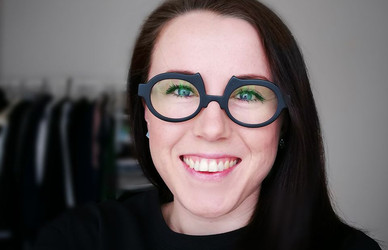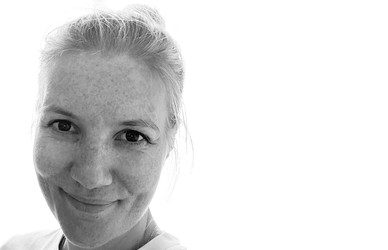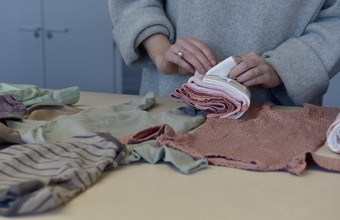Method cards open the door to life-long learning
"The cards are a tool. They are continually being developed in an educational context at Design School Kolding. It is an iterative progression in which the teaching process, teachers and students contribute to the quality, "says Silje Kamille Friis, PhD in design process and methodology.
Since 2006, the development of a robust set of design method cards has been one of the focal points of her work:
"IDEO made their method cards way back in 2002, but the co-creation cards are based on a theoretical model, so that both designers and non-designers can use them. My starting point has been to create a common language, when people with different professional backgrounds have to work together in a creative process. The cards are the seeds for a better understanding of how each individual works in a design process."
Based on the cards Silje Kamille Friis wrote her thesis about how designers produce knowledge in a design process in 2006. Later the cards were revised so that they could be used for instructional purposes.
‘Non-flict’ solution
"The cards were meant to help students think more in terms of process and method. They had to gain their own experience and be able to formulate a design challenge − not only think in the form of ready-made solutions. At the same time I received additional new input to the cards, because I continued to interview the students and the teachers and evaluate the value of the cards on a number of specific touch points," says Silje Kamille Friis.
For example, in 2015 it led to the addition of cards that were meant to support cooperation and conflict resolution in a design process:
"The students used the cards in a seven-week group programme. I observed a number of ‘non-flicts’ in which they behaved very courteously towards each other. They avoided conflicts, because they lacked the methods to deal with them. The new cards therefore illustrate that if you address disagreements rather than avoid them, new perspectives will open up."
Positive interaction
The cards also force the participants to reflect on different ways of producing knowledge:
"The cards enable the students to switch between a number of conflicting positions: Individual versus group, reflection versus physical work, opening up for ideas versus cutting off and focusing," says Silje Kamille Friis and explains that thus the cards become a true catalyst for the students’ learning:
"The cards act as an empowerment of the students, even when no teacher is present. For example, they use the cards to negotiate process or choose a 'pull-a-card' method, where a random selection of cards helps to unleash the thought process. In addition more students take the cards with them into their apprenticeship, as a means to explain the design process and their way of working."
Short crash course
The co-creation cards are also used in many other contexts. They are publicly available and are being sold in a number of web shops; they are also used in the training of for example managers and middle managers, who want a crash course in design methodology. This, in turn, has led to the development of a new card:
"In short workshops it is hugely important to be able to change pace. Therefore, a new method card has been developed called 'Switch'. It provides an increased awareness of the modus operandi, and allows you to switch from theory to practice, from an 'open' to a 'closed' mind-set. It creates a great dynamism and energy. I notice that my adult learners take the cards home to their organisation and use them to facilitate innovation and change processes with their employees. They will also return with new ideas, "says Silje Kamille Friis, who mentions that for example tools for educational facilitation − a card about the use of the cards in practice − is on many non-designers' wish list. Thus the cards, which celebrated their 10th anniversary last year, are being continually enhanced.
In 2017, Design School Kolding and the international Cumulus Association will be hosting a large, international conference with the title REDO. The purpose of the conference is to zoom in on design’s role in creating a sustainable future and achieve impact on political decision-making processes. As a prelude to the conference, we will be bringing a series of articles to show Design School Kolding’s research and how we work to bridge the gap between design thinking and design practice.




